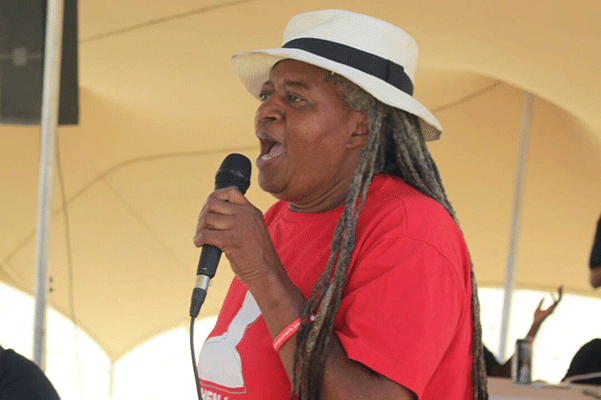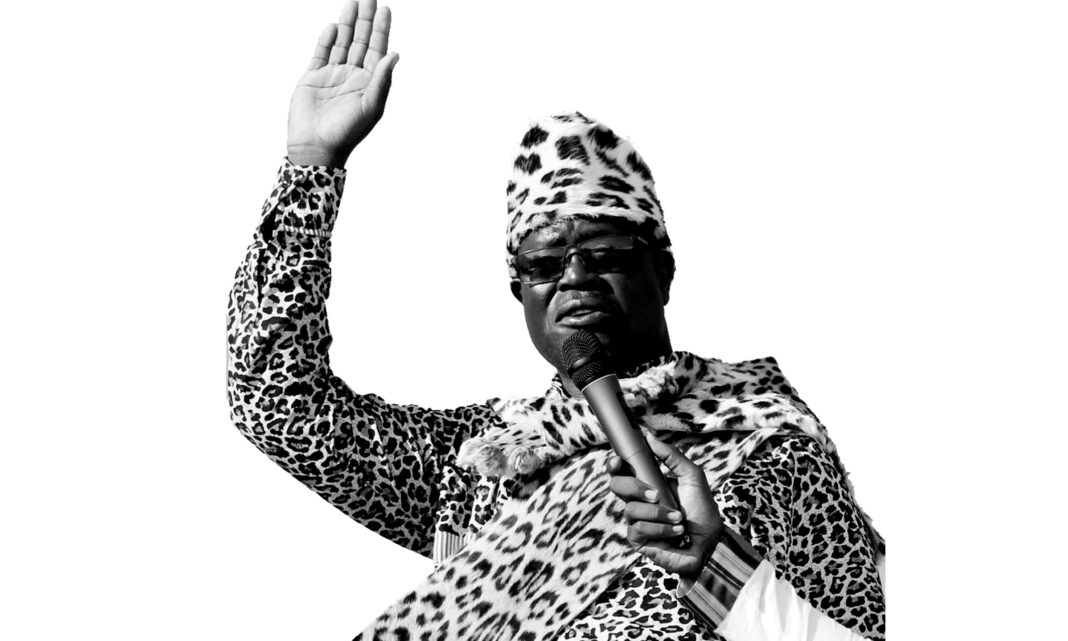By Eliaser Ndeyanale and Eino Vatileni | 20 July 2022
EIGHT traditional authorities from northern Namibia are set to review the fines used to punish culprits who break the law, including the N$3 000 (or two head of cattle) fine slapped on rape offenders.
These fines are among many used by traditional authorities across the country.
“For insulting someone, you pay a goat. It is slaughtered and cooked at the court and is then eaten by the affected person’s family,” said Zeraeua Traditional Authority traditional counsellor Fabianus Uaseuapuani.
Namibians convicted of crimes in court can be punished again by the traditional authorities. But in the case of the traditional authorities, does the punishment fit the crime?
Eight traditional authorities from northern Namibia are using fines that were approved in 2014.
The fines include N$15 000 (or 10 cows) for murder, and N$4 500 (or three cows) for a man convicted of adultery, while a man found guilty of impregnating a child is slapped with a N$3 000 (or two head of cattle) fine.
The eight traditional authorities are Ombalantu, Ongandjera, Ombadja, Uukwaluudhi, Uukolonkadhi, Uukwambi, Ondonga and Oukwanyama.
The fines are revised every five years – if necessary.
Herman Iipumbu from the Uukwambi Traditional Authority told The Namibian yesterday that the eight traditional authorities will sit at the end of September or beginning of October to come up with new fines.
“They [fines] were introduced in 2014 and were supposed to be reviewed in 2020. In 2020, we were supposed to have a meeting to review them but we couldn’t do so due to Covid-19. However, we will review them this year,” he said.
Iipumbu chairs meetings of the eight traditional authorities.
Uaseuapuani said villagers convicted of any form of theft are charged six cows and the maximum depends on the seriousness of the case.
He said when paying a theft fine in cash, the amount is determined according to the market price of the stolen product or animal.
Offenders pay N$1 000 in cash for insulting someone’s private parts (crimen injuria) and N$2 000 for breaking someone’s body part.
“For impregnating a schoolchild or a mentally challenged person, the perpetrator is fined a goat or a cow, depending on the wealth of the family,” Uaseuapuani added.
Vaalgras Traditional Authority senior counsellor Martin Biwa told The Namibian that people who are convicted of theft are fined three goats.
‘DEAL WITH RAPISTS’
Social justice activist Rosa Namises said traditional authorities fines must be based on the rape act and not just on culture.

Rosa Namises
She added that traditional authorities are patriarchal, as their fines are based on how they treat women in their cultures.
“You cannot pay for rape. Whether it’s monetary or cows. Families need restoration of justice. Whether they take them to jail, paying someone for raping a child is wrong,” Namises said.
“The payment is to put the case under the carpet. Those ways of paying [wronged] people are old fashioned. Justice must be served for the affected families. That is trying to normalise the abuse of women and children,” she added.
Namises said the government needs to deal with rape cases with strict punishments and aggression.
“Traditional authorities must also be radical in dealing with rapists. What happens to cultural morals?” she asked.
The fines came under public criticism when they were made public at an Ondonga Traditional Authority meeting held at Ondangwa in March this year.
WIPE OFF TEARS
Justice minister Yvonne Dausab defended the legality of fines imposed by traditional authorities, even in cases where the rape of a child is punished by a fine of two cows. She said such measures exist to ‘wipe off tears’ of the victims and their families.

According to the minister, the fines are in line with the aim of restoring social peace and harmony in communities.
She said the absence of a compensatory process in state courts normally leaves a gap, whereas at the level of the community court, access is free.
“This means the injured party or family is not satisfied with a criminal process that only punishes the offender without any compensation to the injured person,” she added.
The minister, however, warned traditional authorities not to be too strict with the fines.
“Traditional leaders are expected not only to promote peace and the welfare of the people but also assist the Namibian Police with crime prevention and investigation, in line with the Criminal Procedure Act,” the minister said.
The minister said the community members in the rural areas governed by customary laws can opt to have their matters adjudicated both through customary law and the law of the country.
The minister said having matters adjudicated in both state and community courts is not double jeopardy, because in ordinary courts there is also provision for civil (that is, compensation) and criminal proceedings.
“A person can, therefore, be punished for the crime committed and be required to restore the person in the position they were before the offence,” she added.
Dausab said community courts are not authorised to replace the role of the police and the prosecutor general when it comes to the commission of serious crimes against society, such as statutory rape and murder.
Ondonga King Fillemon Shuumbwa Nangolo told the Ondonga Traditional Authority meeting in March that the fines imposed on community members who transgress the authority’s laws were not introduced by him, but by all eight northern traditional authorities.
He added that fines existed during the reign of the late Ondonga King Kambonde Mpingana. Mpingana was Ondonga king from 1884 to 1908.
THE FINES
According to the fine booklet of the Ondonga Traditional Authority, a person found guilty of intentionally killing another person would be fined N$15 000 (or 10 cows).
The booklet also shows that if the offender pays the deceased’s family, the family would keep N$13 000, as N$2 000 would go towards the coffers of the traditional authority.
If the offender offers cows, the deceased’s family would receive nine cows, while the traditional authority would receive one.
According to the booklet, a person found guilty of killing without the intent to kill is fined N$7 500 (or five cows). In monetary terms, the offender pays the deceased’s family N$5 000, while N$2 500 goes to the authority.
If the offender offers cows, he/she would pay five cows, four of which go to the deceased’s, while the fifth cow goes to the traditional authority.
A man who commits adultery is fined N$4 500 (or three cows), while a woman is fined N$1 500 (or one cow).
Asino said those convicted of impregnating schoolgoing children or raping them are fined two head of cattle (or N$3 000).
If a man impregnates a person with disability, the offender pays three head of cattle (or N$4 500). A villager convicted of permanently injuring another villager’s arm, leg or eye is fined N$7 500.
A villager found guilty of making insults about another person’s body parts from the head to the navel would be penalised N$150, while making insults about body parts from the waist to the feet would result in a penalty of N$250. According to the rules, a villager found guilty of breaking another person’s teeth will be fined N$1 500 (or one cow).






